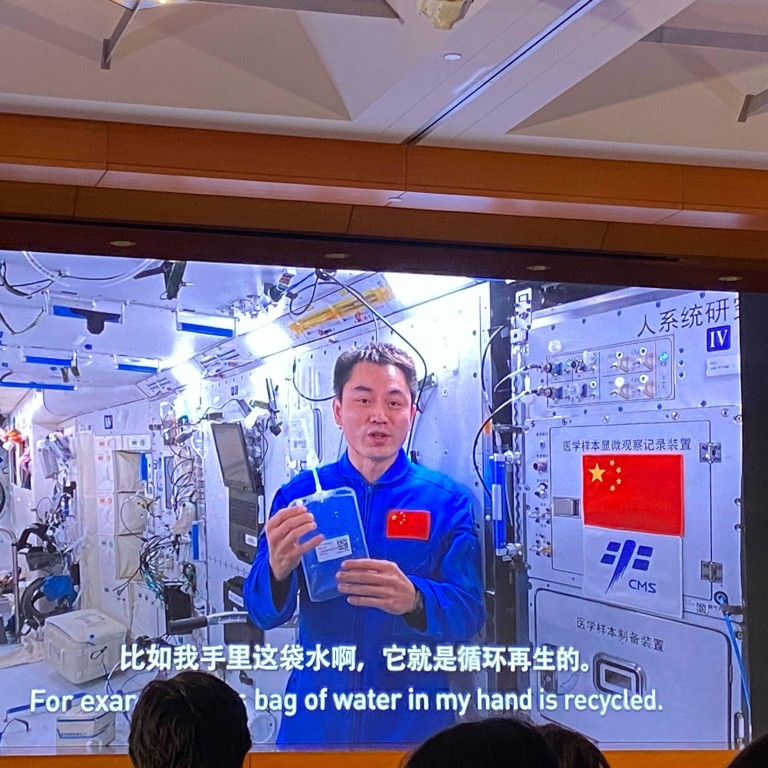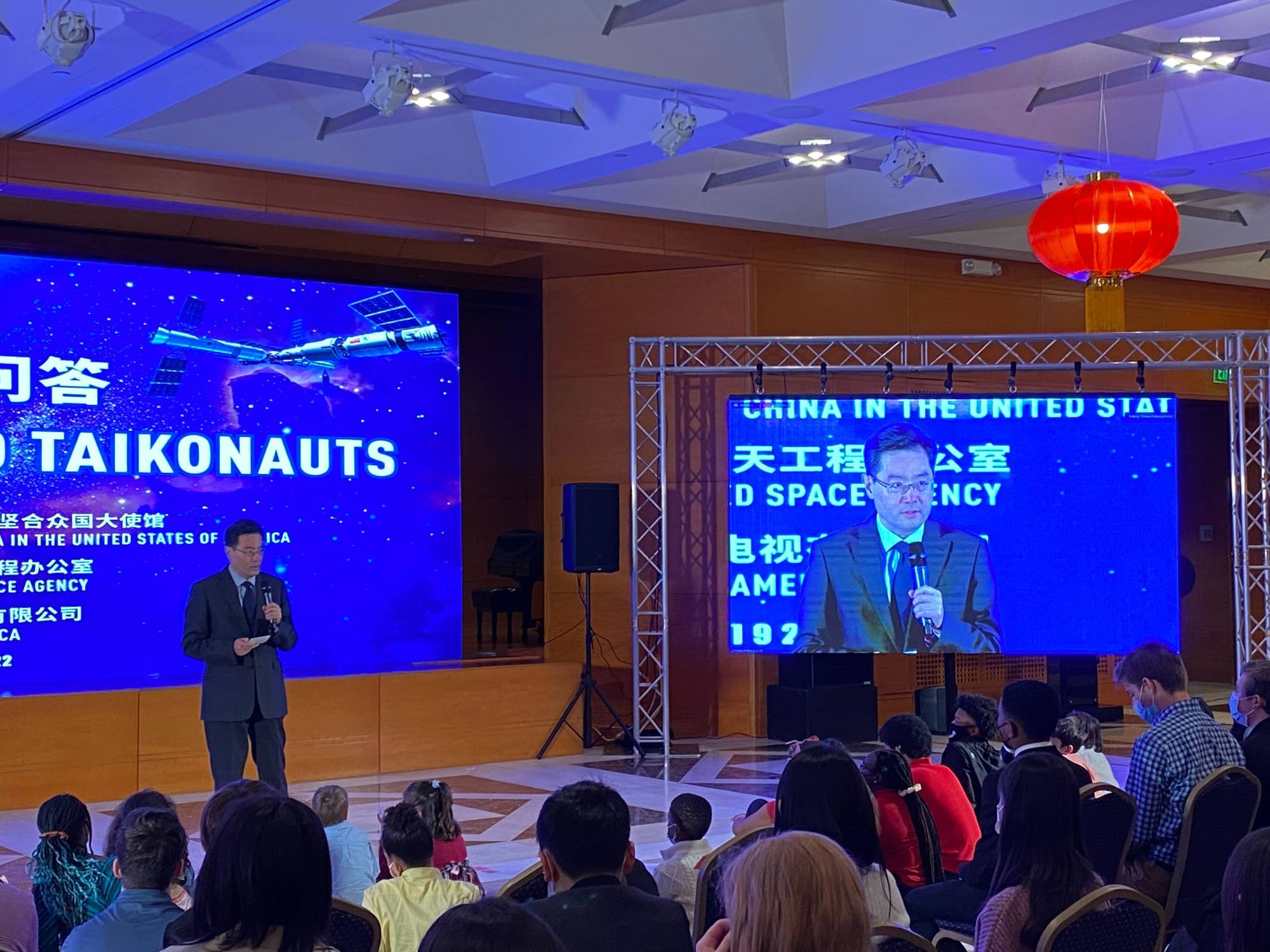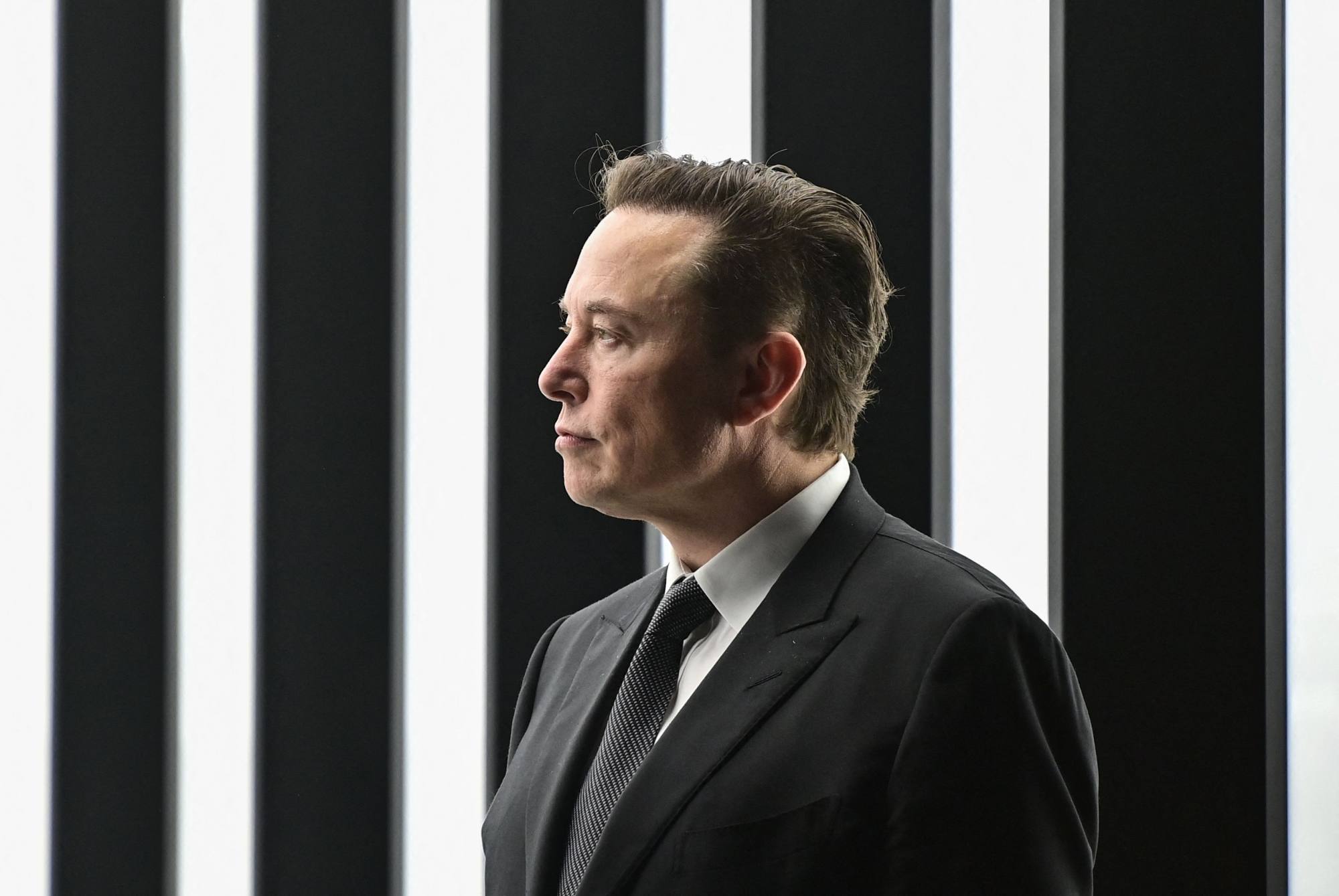
Elon Musk featured in Chinese embassy event focused on space exploration
- The American billionaire pushes cooperation on self-sustaining Mars outposts during pre-recorded remarks at China’s Washington embassy
- The event with China’s Ambassador Qin Gang comes months after Beijing complained that its space station had to evade Musk’s company’s satellites
Musk’s short, pre-recorded remarks were played on three large screens to an audience of American schoolchildren, their parents and teachers, embassy staff and journalists.
“I look forward to humanity working together to form self-sustaining civilisation on Mars and other planets,” he said, characterising this goal as important for long-term prosperity and survival.
Musk has suggested several times that he is aiming for a mission to Mars, including a pledge in 2016 to build a rocket capable of taking people to the red planet and support a permanent settlement there.

The importance of countries and people seeing past their differences figured as a central theme of the event, which featured a video of American schoolchildren asking Chinese astronauts — known as taikonauts — questions on everything from how they eat and exercise in space to how they train and keep themselves entertained.
At six months, the mission is the longest stint in space yet for China’s astronauts. It is the second expedition to the Tiangong space station, also making headlines for including the first spacewalk by a female astronaut from the country, Wang Yaping. Other objectives include further construction of the space station and over 20 scientific experiments.
The crew is due to return to earth in about a week’s time.
The embassy event also included two former Nasa astronauts: Don Thomas, who flew to space four times and served as the International Space Station Program Scientist, and Barbara Morgan, who was Nasa’s first Educator Astronaut.
First all-private astronaut team welcomed aboard ISS
Both of them recalled — Thomas in person, Morgan online — their first forays into space and the impact it had on their views of Earth.
They stressed the need to protect the planet, the importance of curiosity, and lauded the children in attendance as the next generation of astronauts.
Chinese Ambassador Qin Gang echoed that sentiment in his closing remarks, calling for all people to “join hands in protecting our Mother Earth and work towards a shared future and common prosperity for all mankind.”
In December, China sent a note verbale – an unsigned message less formal than a diplomatic note – to the United Nations to complain that Tiangong had to evade Musk’s company’s satellites last July and October.

Despite the disagreement, Musk’s inclusion in the embassy’s event highlighted the continued importance of the relationship between Beijing and the billionaire.
China aims to cement its dominance in electric vehicle (EV) manufacturing, and Musk’s Tesla is the global industry leader.
China to start building 5G satellite network to take on Starlink
The US carmaker has significant operations in China. Tesla’s Gigafactory 3 in Shanghai churned out 484,130 vehicles in 2021 – more than half the company’s global production. The factory is also the only car assembly line in mainland China that is fully owned by a foreign investor.
And SpaceX continues to push for greater access to the final frontier. On Friday, it contributed to a milestone in the commercialisation of space, launching the first all-private team of astronauts to the International Space Station.

